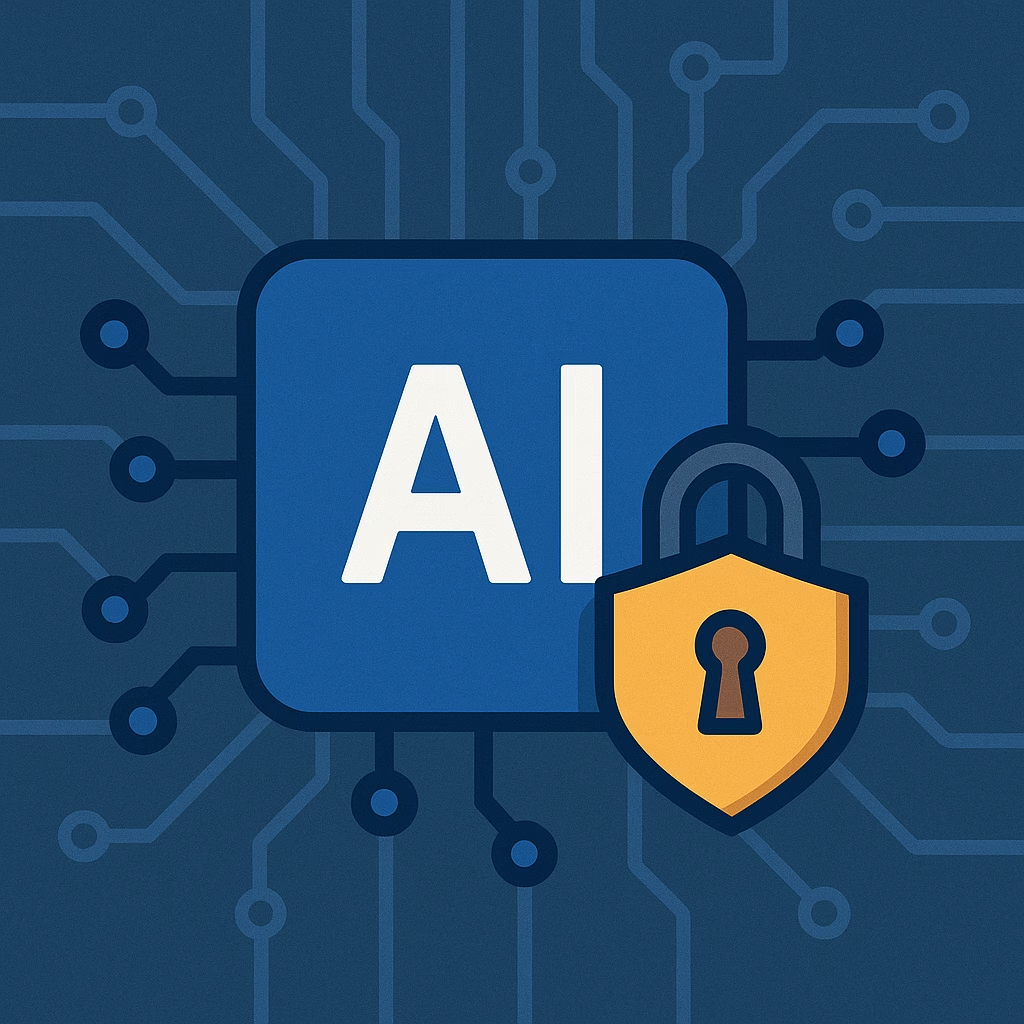Understanding Cybersecurity: What Does it Really Mean in Urdu?
You’ve probably heard the word “cybersecurity” thrown around a lot, especially in today’s digital age. But, like me, maybe you’ve found yourself thinking, “What exactly does that mean?” We talk about it all the time in tech, and it’s everywhere—online banking, social media, email security. Yet, there’s still something about the term that feels kind of… broad, right? It’s like one of those buzzwords that’s important but also a little tough to get your head around.
So, let’s break it down a bit, starting with the basics.
Cybersecurity — the word itself sounds kind of intimidating, doesn’t it? But when you start digging into what it actually means, it gets clearer. It’s essentially all about protecting your digital life. Think of it as the shield around your personal information, your online interactions, and your devices, helping to prevent bad actors from getting in and causing harm. In Urdu, cybersecurity is typically referred to as سائبر سیکیورٹی , but the meaning is pretty much the same.
Now, hold on for a second. Let’s slow down and talk about it more.
When you think of cybersecurity meaning in Urdu, it’s not just some technical term for geeks in labs somewhere. It affects you, me, all of us. Your Facebook account? Protected by cybersecurity. Your online banking? Cybersecurity. Even your email—yeah, it’s got a layer of cybersecurity around it. In a nutshell, cybersecurity in Urdu سائبر سیکیورٹی is just the practice of defending your digital stuff from threats.
But, there’s more. Let’s talk about cyber meaning in Urdu because it’s useful to understand that too, especially when we’re breaking down concepts like encryption, privacy, and threats.
What’s Cyber Anyway? Let’s Talk About the “Cyber” Part
You know that cyber part in cybersecurity? Well, that refers to anything that has to do with computers, networks, and the internet. So when we talk about cyber issues or cybercrime, we’re talking about anything online or digital.
The word cyber has made its way into our vocabulary so much that we might forget where it came from. It’s derived from the word cybernetics, which sounds like something out of a sci-fi movie. But basically, cybernetics is all about how machines and humans interact, control systems, and communications. And now, the word has evolved into something more common: cyber. In Urdu, it’s kind of loosely translated as آن لائن (online) or ڈیجیٹل (digital), but it’s really just anything that lives on the internet.
So, Why Should You Care About Cybersecurity?
Okay, let’s make this a bit more personal. Imagine you’ve just finished a long day of work and decide to check your bank account on your phone. You open the app, type in your password—and bam! It’s done, right? Not quite.
Behind that simple login, there’s a whole bunch of protection mechanisms making sure no one else is sneaking in to swipe your money or personal data. That’s cybersecurity at work.
If you’re wondering why cybersecurity matters so much, here’s why: we store and share an insane amount of personal data online. Our financial info, our health records, our photos, our location—you name it. If any of that gets into the wrong hands, things can go south fast. Cybersecurity keeps that from happening.
It’s funny, because people often think about cybersecurity only when something bad happens. Like when you get a weird email from a bank you don’t remember joining, or a message telling you your account has been locked. But if cybersecurity is doing its job right, those things shouldn’t happen in the first place.
In Urdu, this whole process is often explained as ڈیجیٹل تحفظ (digital protection) or انٹرنیٹ سیکیورٹی (internet security). And honestly, once you see it in that light, it’s clear how much we rely on it.
The Importance of Encryption: Breaking it Down
Now, let’s go a bit deeper into something that really works hand-in-hand with cybersecurity: encryption. This word might sound a bit intimidating, but it’s actually pretty cool once you understand it.
Encryption, or انکرپشن in Urdu, is a method used to protect information by converting it into a secret code. It’s like putting your important stuff into a locked box, then sending it off through the internet. Even if someone tries to snoop around and open it, all they see is a bunch of jumbled nonsense. Without the key, they can’t get in.
Here’s a quick story for you. I remember the first time I set up an encrypted chat on my phone. It felt like I was suddenly living in a secret agent movie—everything was just locked up tight. It was a small thing, but it made me realize how much encryption meaning in Urdu was tied to my peace of mind online.
If you’re doing something sensitive online—like banking or sharing personal info—encryption’s the real MVP. You wouldn’t leave your house without locking the door, right? Same thing with encryption. It locks up your data while it travels across the internet.
Common Cybersecurity Threats You Might Encounter
Cyber threats are everywhere, and sometimes they feel like they’re waiting for the perfect moment to pounce. There are a few common ones you should be aware of:
- Phishing: You’ve probably heard of this one. It’s when cybercriminals send you fake emails or messages that look like they’re from a trusted source (like your bank or a social media platform) to steal your personal info.
- Malware: Think of this as harmful software that sneaks into your devices and causes damage or steals data. It can come in the form of viruses, spyware, or even ransomware.
- Hacking: This is where a hacker gains unauthorized access to your computer, network, or account. They might steal info, cause disruptions, or do worse.
- Ransomware: Maybe the most extreme. It locks your files and demands payment for their release. Yup, that’s a real thing.
Pro tip: If something feels off, don’t click. If you get a weird email with a strange link or a pop-up ad asking you to download something—just… don’t.
What’s the Role of Firewalls and Antivirus Software?
Now that you know the threats, how do you defend yourself? Enter firewalls and antivirus software. A firewall is like a security guard standing between your computer and the internet, checking to see if anything sketchy tries to get through. Antivirus software, on the other hand, looks for viruses and malware and removes them. Both of these tools help keep the digital bad guys away.
Final Thoughts
So, there you have it—cybersecurity meaning in Urdu is essentially about protecting your digital life. The tech behind it might be complex, but the idea is simple. It’s all about keeping your information, your devices, and your identity safe. Without cybersecurity, things would be chaos.
Maybe we can’t stop every single attack, but by using things like strong passwords, encryption, and firewalls, we can definitely reduce the risk. So, while it might feel like this world of tech is all over our heads sometimes, there are actually simple steps we can take to make sure we’re staying safe. And honestly, that’s kind of empowering, don’t you think?
FAQ Section
1. What exactly is cybersecurity?
Cybersecurity is the practice of protecting digital devices, networks, and data from unauthorized access, theft, and damage.
2. Why is cybersecurity important?
It’s important because we store a lot of sensitive information online—like bank details, personal photos, and emails—and cybersecurity helps prevent hackers from accessing them.
3. What is cybersecurity meaning in Urdu?
In Urdu, cybersecurity means سائبر سیکیورٹی (saiber security), which is about protecting your digital life from cyber threats.
4. How does encryption help in cybersecurity?
Encryption turns your data into unreadable code, which only someone with the right key can decrypt. It’s like locking your data in a safe.
5. Can I protect my online accounts from hackers?
Yes! Using strong passwords, enabling two-factor authentication, and keeping your software up to date are all great ways to protect your accounts.
6. What are the common cyber threats?
Phishing, malware, hacking, and ransomware are some of the most common threats that can harm your digital life.
7. What is a firewall?
A firewall is a barrier that monitors and filters the traffic coming to and from your computer or network, preventing unauthorized access.
8. What’s the difference between a virus and malware?
Malware is a broad term that includes any harmful software, while a virus specifically refers to a type of malware that replicates itself and spreads.
9. How can I tell if my data is encrypted?
If you’re using an encrypted service, it usually shows up as HTTPS in the URL and may have a padlock icon next to it.
10. Is it possible to recover from a ransomware attack?
It’s difficult, but not impossible. Having backups of your data and using strong cybersecurity practices can reduce the chances of falling victim to it.



![What Is Cybersecurity Meaning in Urdu? [2025 Edition]](https://techy-180.com/wp-content/uploads/2025/05/D1D0C4CF-E02C-4600-B280-4F927595A45E-150x150.avif)







